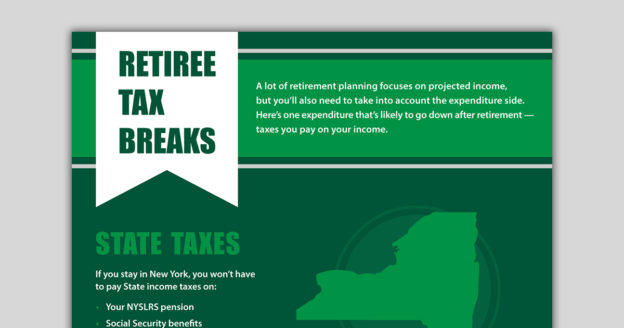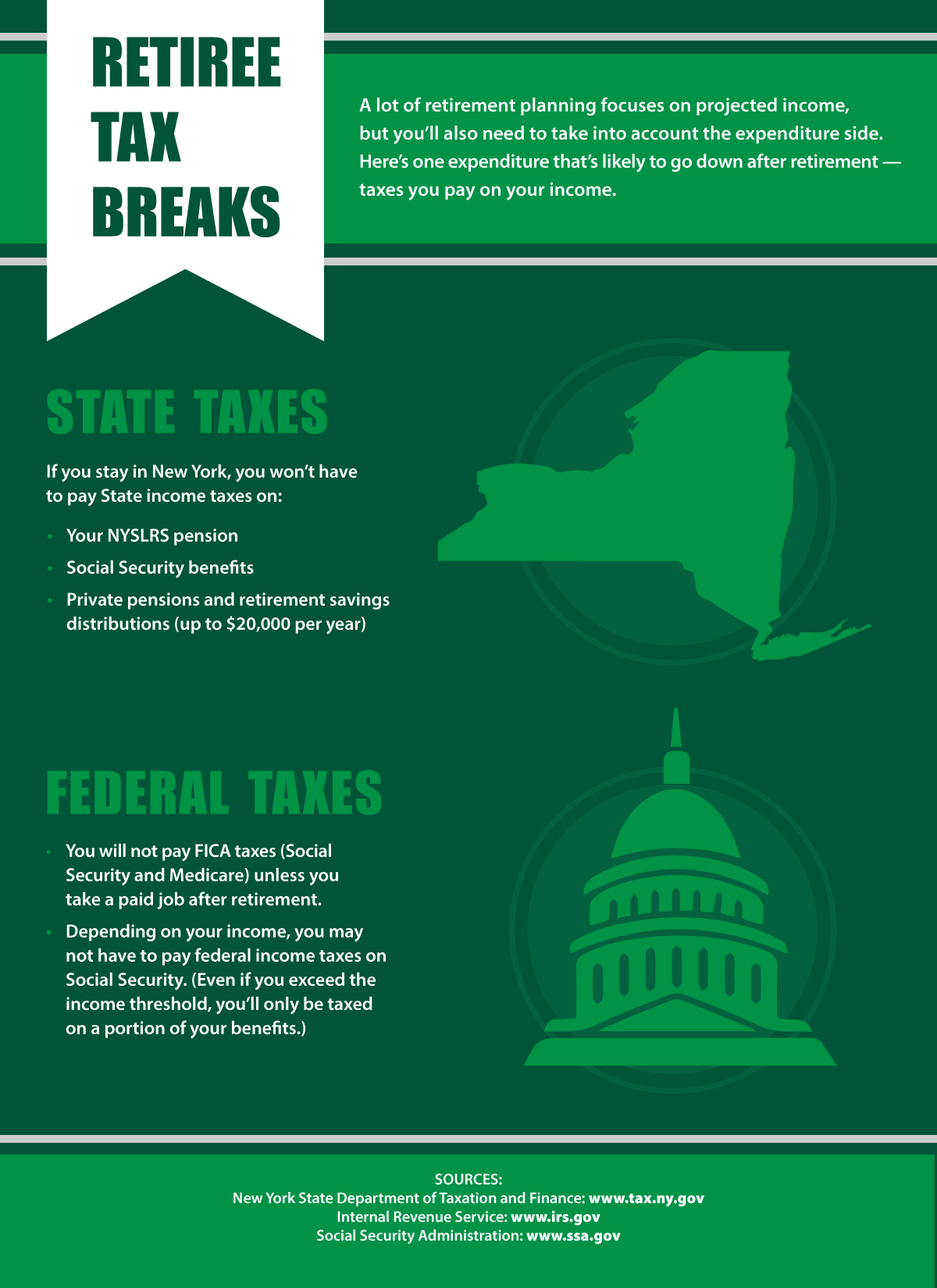 Tax season is approaching, and with 1099-Rs available online, getting this key NYSLRS tax form is now faster and more convenient than ever.
Tax season is approaching, and with 1099-Rs available online, getting this key NYSLRS tax form is now faster and more convenient than ever.
Most NYSLRS pensions are subject to federal income tax (some disability benefits are not taxable). If you receive taxable income from NYSLRS, we provide a 1099-R tax form for filing your taxes. New this year, retirees who opted to go paperless received an email notifying them their 1099-R is available in their Retirement Online account. If you did not change your delivery preference to email, your 1099-R tax form will be mailed to you by January 31.
Understanding Your 1099-R
A 1099-R tax form is used to report the distribution of taxable retirement benefits. It shows:
- The total benefit paid to you in a calendar year.
- The taxable amount of your benefit.
- The amount of taxes withheld from your benefit.
If you have questions about the information on the form, check our interactive 1099-R tutorial. It walks you through a sample 1099-R and offers a short explanation of each box on the form.
Get Your 1099-R Online Now
Whether you chose email delivery or not, you can access your 1099-R in your Retirement Online account now. To view, save or print your 1099-R:
- Sign in to Retirement Online.
- From your Account Homepage, click the “Manage My 1099-R Tax Forms” button.
- Select “2023” from the dropdown.
If you don’t have an account, you can find step-by-step instructions for registering in the Tools & Tips section of the Retirement Online page.
Changing Your Federal Withholding
After you file your taxes, you may find that you need to adjust the federal taxes that are being withheld from your pension.
Retirement Online is the fast and convenient way to change your withholding information. You can also check your current withholding by signing in to Retirement Online and viewing your most recent pension pay stub. Visit our Taxes and Your Pension page for more information.
Note: New York State doesn’t tax your NYSLRS pension, and we can’t withhold income tax for other states.



